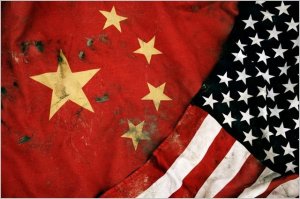
The most striking evidence of the growth of anti-Chinese sentiment in the American political establishment was this year’s October 30 meeting of the Subcommittee on Europe, Eurasia, and Emerging Threats, part of the House committee on Foreign Affairs. As evidenced by its results, the session was marked by a significant rise in incitement to Washington’s military confrontation with China in the Asia-Pacific region.
The topic of the subcommittee hearings under the chairmanship of the right-wing Republican congressman Dana Rohrabacher was, “China’s Maritime and other Geographic Threats”. The explicit purpose of these “hearings”was for American politicians to find ways to further strengthen U.S. expansion in the Asia-Pacific region through a military confrontation with China regarding its actions against Japan.
In contrast to the official rhetoric of the White House “on the development of cooperation with China”, Dana Rohrabacher stated, at the very opening of the subcommittee meeting, “We are in a cold war with China”. Helabeled China as an explicit international threat in its pursuit of domination in the Asia-Pacific region, calling into question the legitimacy of China’s territorial claims in the East China and South China seas. He regarded these claims as “unfounded”, “dubious” and “expansive”. Rohrabacher criticized the Obama administration for not officially supporting the territorial claims of the Philippines in the South China Sea. In his view, Washington’s neutral position regarding territorial disputes with China in the South China and East China seas is detrimental to American allies.
Obviously sticking to a confrontational stance regarding the PRC, Rohrabacher accused Beijing of “sending tens of thousands of students to the United States to collect sensitive information,primarily concerning arms, to then use that intelligence for the interests of the Chinese army”.Another serious threat to the U.S., according to Rohrabacher,are Chinese hackers, who are penetrating U.S. government and research centers.
Rohrabacher’s rhetoric was reinforced by committee member Alan Lowenthal, who noted that “we need to draw all relevant lessons from history and, if conclusions aren’t made, a new Pearl Harbor could catch the U.S. by surprise, and the future will resemble the events of September 11, 2001”. Therefore, he said, “we must act with great caution regarding China”.
Calls for militancy were joined in by the oldest member of the U.S. House of Representatives, Congressman William Keating, who criticized the policy of reducing the U.S. military budget, which, in his opinion, instills a lack of confidence among America’s allies in Washington’s ability to protect their interests.
Certainly, the timing of the hearing on this subject in the U.S. House of Representatives subcommittee drew particular attention to itself. After Washington’s refusal, under the influence of the international community, to implement a military strike against Syria, Obama’s demonstrated non-participation in recent Asian summits, and the scandalous revelations of U.S. embassy and consulate espionage around the world on behalf of the National Security Agency, U.S. foreign policy is clearly in crisis.In these circumstances, the American political establishment clings to the Obama administration’s proclaimed “Asia Pivot”, to take revengeon the international level, and alongside its allies, to militarily block China in the Asia-Pacific region. It was precisely this situation which caused the subcommittee meeting’s calls for the creation of an Asian military coalition run by the U.S. and based on the action against Japan.
Given the appeals of these American politicians and the course set by Abe’s government to increase Japan’s defense budget, as well as the relaxation of constitutional restrictions on the use of the national armed forces, it’s hardly worth expecting Tokyo to soften its militant position in the territorial dispute with China in the near future.Perhaps the same can be said for the creative role of the U.S. in easing international tension and regional conflicts.
Valery Kulikov, expert political scientist, exclusively for the online magazine “New Eastern Outlook”.
